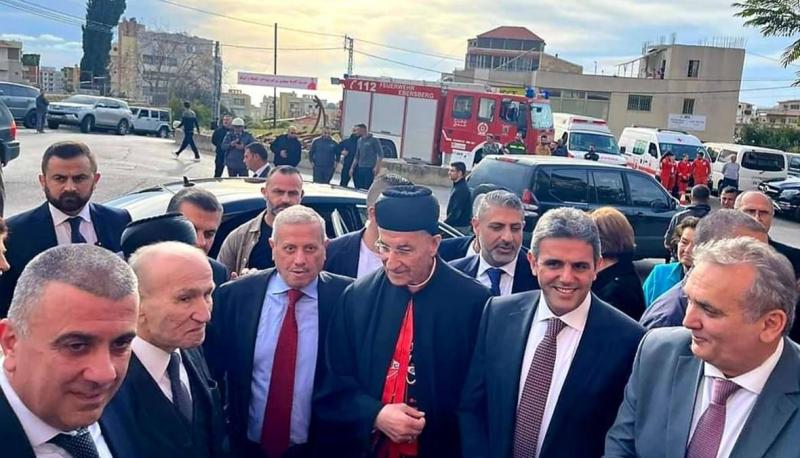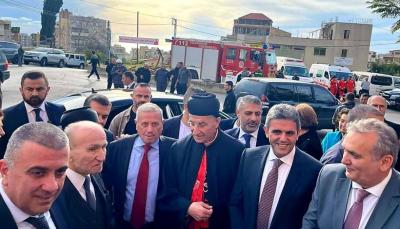Patriarch Bechara al-Rahi noted during the launch of the National Maronite Conference in the city of Jbeil that "Lebanon and the Maronites are twins, and I do not utter the word Maronite except when I speak of the President of the Republic." He added, "In Lebanon, there is a fundamental rule of coexistence between Christians and Muslims with equality in rights and duties. This rule is not based on numbers but on equal partnership in governance and administration between Christians of all sects and Muslims of all sects. In this sense, it has been said that Lebanon is 'like a bird with two wings.' This feature has been granted a legal dimension by the Constitution, stating in the preamble that 'there is no legitimacy for any authority that contradicts coexistence' (preamble, y). The Charter of Coexistence (1943), renewed in the Taif Agreement (1989), has become the basis of trust among the Lebanese."
Al-Rahi continued, "In an Arab and Eastern environment characterized by religious, party, and opinion singularity, Lebanon stands out with cultural and religious pluralism within the framework of national unity based on three principles: equality in governance and administration, the republican democratic parliamentary political system, and general freedoms, foremost among them the freedom of opinion and belief."
He added, "Unfortunately, we notice that these features that have made Lebanon a 'valuable civilizational asset,' a cultural, economic, and social bridge between East and West, and a space for dialogue and meeting of religions, have been distorted for about thirty years. There is a blatant violation of the Constitution evident particularly in the failure to elect a President of the Republic without any justification, but for obvious goals, which is to exclude the only Christian Maronite president in this region."
He further asked, "What legitimacy is there for the parliament to exercise legislative authority, which it lacks, or for the Council of Ministers to perform appointments and other functions that solely belong to the President of the Republic? There is another serious violation of the Constitution in Article 65, which states that 'the declaration of war and peace are matters that require the approval of two-thirds of the number of government members.'"
Al-Rahi stated, "Here we are in the midst of a war with Israel that no Lebanese wants while a group decides it, entangling Lebanon, the South, and the Lebanese, all of whom are still suffering from the dire consequences of the Lebanese war. After the Taif Agreement (1989), which has not been implemented in spirit or in its entirety, the absence of decisive political authority in Lebanon became evident, chaos set in, and governance on the ground fell into the hands of those who wield power through their positions, arms, wealth, or might. The former President, General Michel Aoun, acknowledged at the end of his term: 'We are not in a republic; rather, we are in republics.' What about the increasing poverty, the wave of emigration, the loss of our most vital forces, and the dire consequences of having two million displaced Syrians with respect to economic, security, developmental, social, and educational levels?"
He concluded, "This National Maronite Conference has come at a timely and appropriate moment to be a means of rediscovering our Lebanese identity and our responsibilities. Lebanon and its civilizational value are responsibilities that rest on our shoulders. Lebanon is ill and we must diagnose its illness in order to commit to its healing. Its primary illness is that it has lost the essence of its nature, which is its effective positive neutrality as a mediator of peace, a pioneer of dialogue and convergence, and a defender of people's rights, foremost among them the Palestinian people. Lebanon cannot fulfill this role and mission if it becomes embroiled in regional or international wars and disputes."




